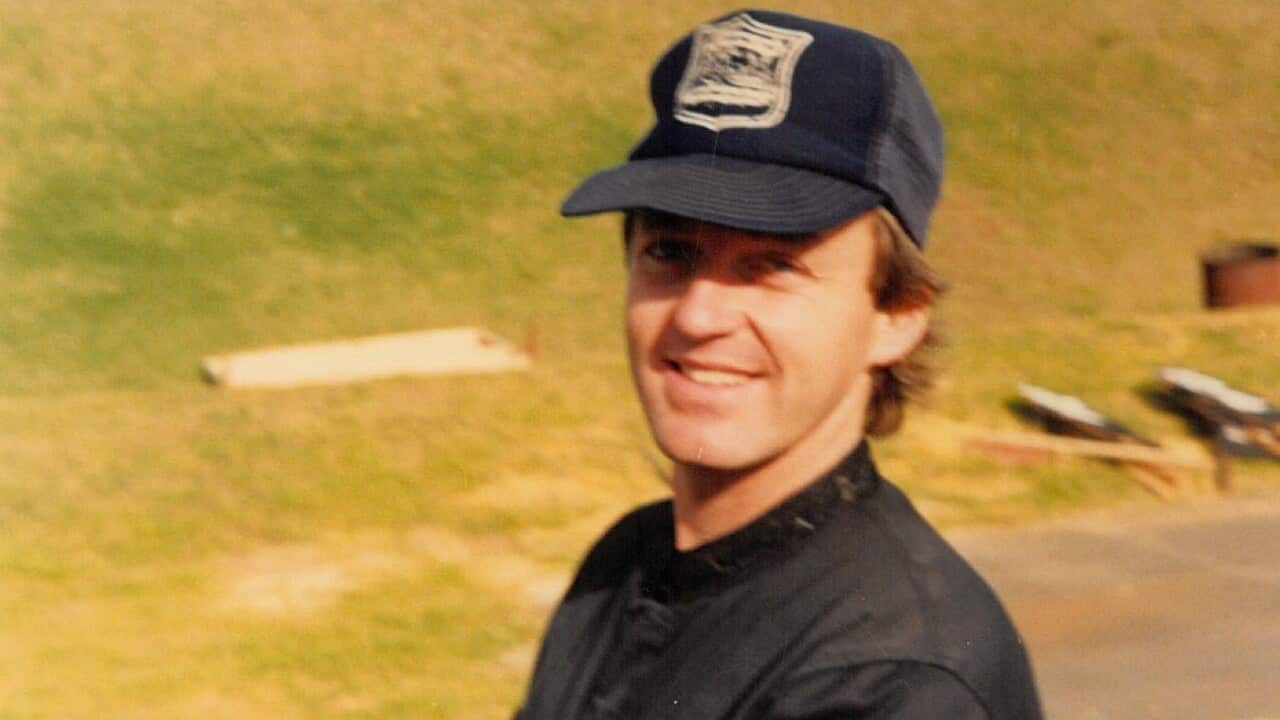Watch SBS Insight's episode on Betrayal – and its devastating impacts - on SBS On Demand.
As a young police officer, I volunteered for deep undercover work in Queensland during the early 1980s, a dark period of police and government corruption.
I was just shy of 22 years of age.
My job was to adopt different names and identities, invent a back story and pretend to all my civilian friends that I had been fired from the police force for drug possession.
I spent my waking hours infiltrating drug rings, making drug buys and having dealers eventually arrested after the close of an operation.
I had to befriend people to buy drugs, predominately heroin, LSD, amphetamines and cannabis.
I betrayed all of them.
I met them through various means, often being introduced into the scene by an informer and spending my time gaining their trust, frequently socialising with them, meeting their friends, partners and sometimes their families.
I carried a gun whenever I left my unit, was hyper-vigilant and had no friends outside the tight-knit circle of other undercover agents, which only numbered five or six at any one time.
My job changed my personality
All of us were kids, with not one of us over 24 years old.
The work was dangerous, lonely and frightening but with the risk came a rush; and initially great satisfaction in seeing drug dealers charged with various offences.
I became an excellent liar and bit by bit my personality changed. Like many undercover agents, the line between reality and my underworld identity became blurred.
I took an almost sociopathic delight in lying and betraying even though I believed it was for the greater good.

Keith was an undercover police officer in the 80s infiltrating criminal groups dealing drugs. Source: SBS
The personal price I and other operatives paid was not obvious at first but, like sediment building in a river over time, it started overflowing into my normal life. I became distrustful and started to believe almost everyone I met outside the drug world was not who they appeared to be.
I met people who were classed as ‘social suppliers’, those who sourced drugs for me as a favour and not for major profit. I felt remorse and guilt for betraying their confidence and trust, yet I told myself I was operating as a police officer and doing my job.
I bought large amounts of heroin from drug dealers who never used their product and who had no remorse about the lives they ruined. I felt no pity for them, but the social suppliers I bought from were treated the same by the justice system. Like being sucked into a tidal rip, once these people were part of a police operation they were caught up in the system, arrested and charged, their lives ruined.

Keith was in his early 20s when he started undercover work. Source: SBS
I questioned everyone and everything
This made me question who I was and what I was doing, and I found myself reassessing my attitudes and my motivation. I reasoned that surely I was doing the right thing fighting the drug trade, and yet I was responsible for the arrest of some who weren’t profiting from an evil business, but just sourcing drugs for me because of what they thought was friendship.
I met some drug dealers who I quite enjoyed socialising with, funny and engaging people, but criminals nonetheless.
That made the betrayal even harder.
I left undercover work at the age of 24 but my life was changed forever.
All of us ended up damaged in some way, some with a psychological addiction to marijuana, others with alcohol dependence and others with paranoia and distrust of almost everyone. Such was the price of living a life of constant betrayal.
I withdrew from my social circle. I told my friends that I'd been kicked out of the police force because they knew me as a uniform officer before I went undercover.
I found it really difficult to trust people, to let my guard down.
I left undercover work at the age of 24 but my life was changed forever. I had a sense of distrust of everybody because I knew fully well how easy it is to betray people.
I served with distinction in other policing specialist areas and was decorated for bravery three times, resigning after 20 years of service with chronic PSTD, anxiety and depression.
I’m proud to say I have worked through those disorders and now enjoy life again. I’ve lost my suspicion and jaded view of the world.
The paradox is that I’d do it all again because there were some evil people that I was able to hold to account.
But that life came at a price none of us could ever have foreseen.











